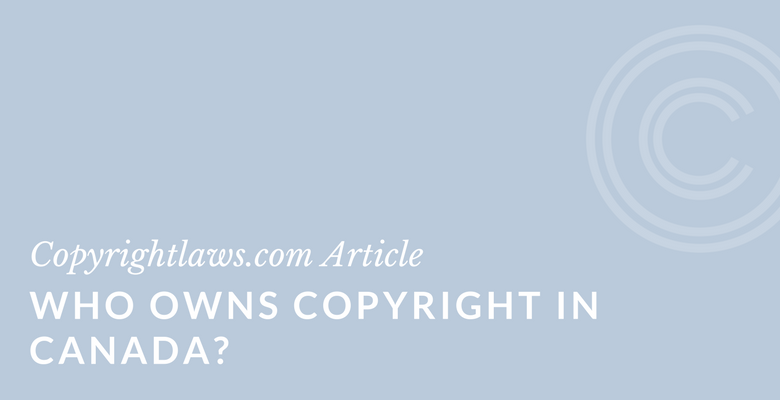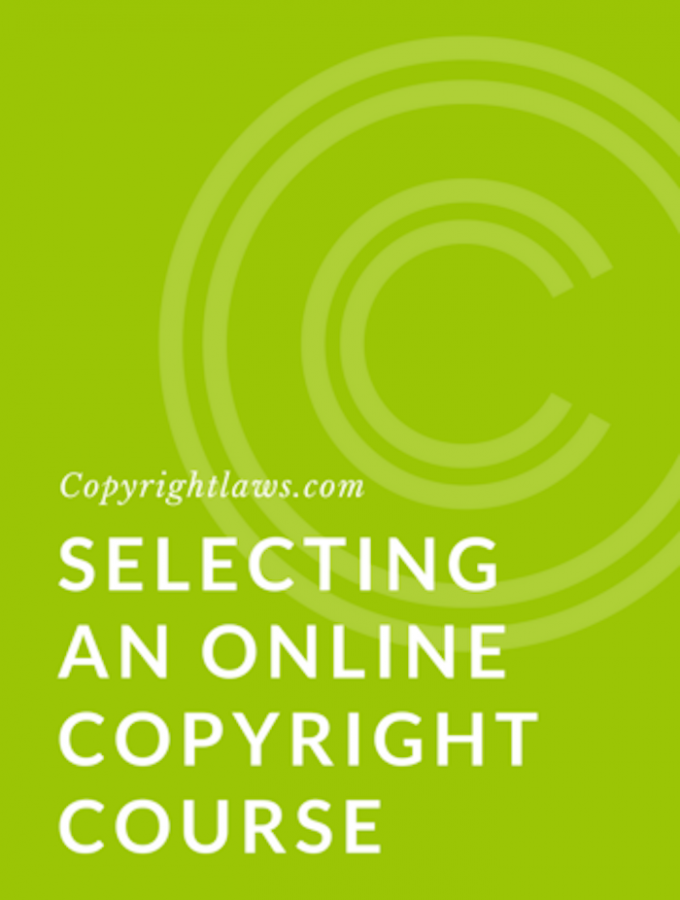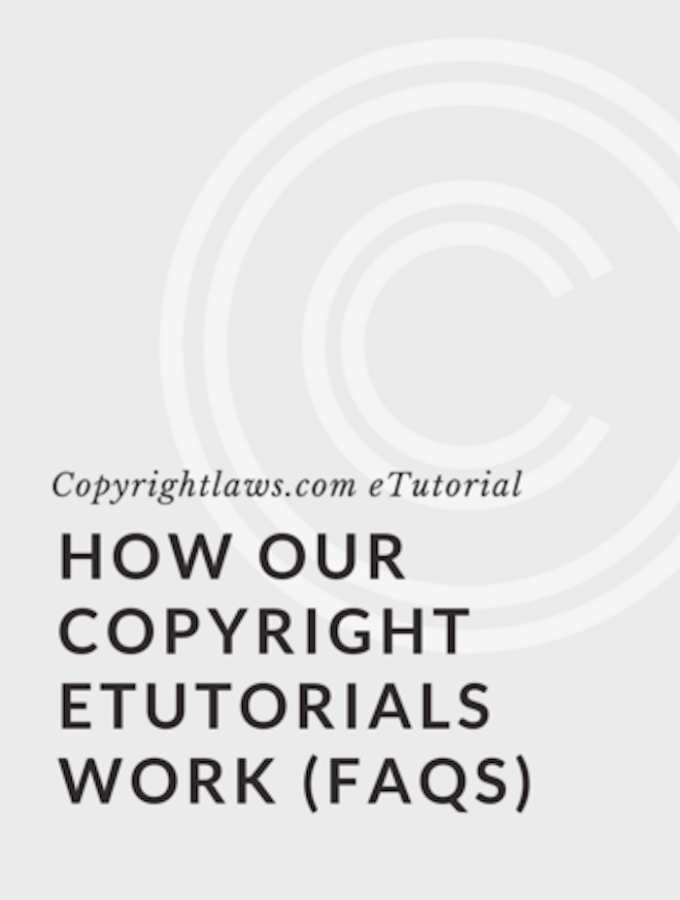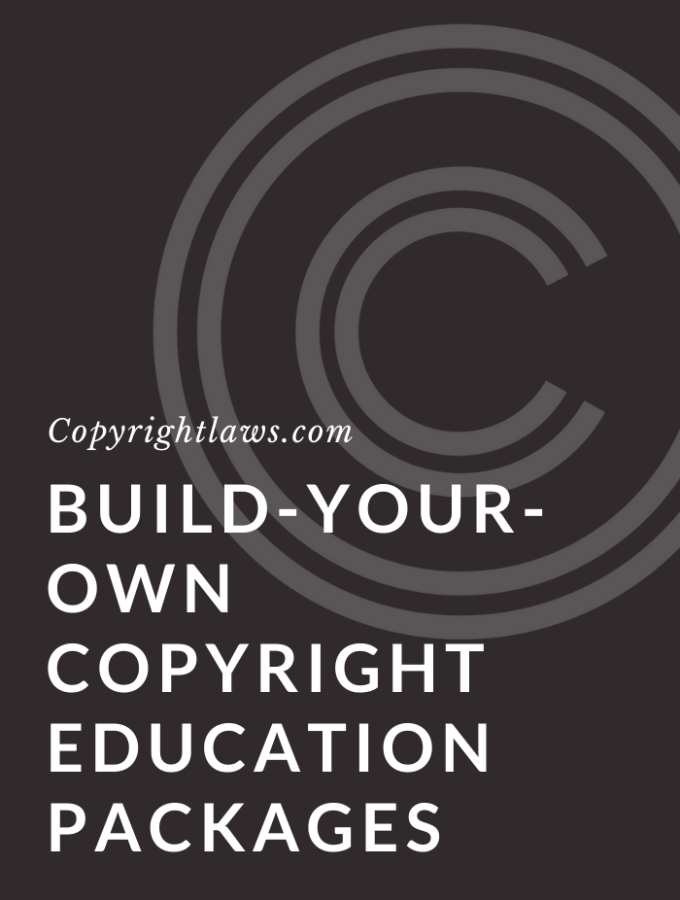
Who owns copyright in Canada isn't always clear-cut. Under Canadian copyright law, the creator (or author) of a work is the owner of copyright in it. However, where a work is created as part of the author's work duties, the employer may have copyright ownership.
People often think that if they commission or hire a freelance writer, photographer, graphic artist or composer to create a work for them that they own copyright in the work and may use it as they wish. Without a clear agreement, this may not be the case.
Who Owns Copyright in Canada in These Scenarios?
- Last year you paid a graphic artist to create an image to illustrate an article in your company’s online magazine. Now you’ve decided to print that image on T-shirts to hand out from your sales booth at an upcoming industry trade show. No problem, right? After all, you paid for that image.
- You commissioned a composer to score and record background piano music for your tourism association’s promotional video. Now you’re planning to ask your city’s symphony to perform the music at an upcoming concert to raise funds for civic projects. You figure that since you own the score this shouldn’t be an issue.
Who Owns Copyright in Canada?
In Canada, the author of a work is the first owner of copyright in it. Although the Canadian Copyright Act doesn't define “author” specifically, the term generally refers to the person who created the work, or the person who first put it in a fixed form. The following examples illustrate how this principle works.
Correspondence — The person who pens a letter or writes an email owns the copyright in it. This is true even after they send the letter or email to the recipient.
Images — The person who draws an image or takes a photograph (even with their smartphone) is the first owner of copyright in it.
Newspaper, Magazine or Periodical Contributions — Freelancers are authors and the first copyright owners of their individual contributions to newspapers, magazines or periodicals, unless they've agreed otherwise. (It’s always advisable to get a freelance relationship in writing.)
Collective Works — In a collective work like an anthology or a newspaper, as per above, the author of each individual work owns copyright in it. But the person who curates or arranges the works in the collection is the author and first copyright owner in the work as a whole (and they require permission to use the individual works).
Co-Authored Works — When two or more authors collaborate in the creation of a work, like a novel or journal article, it's considered a work of joint authorship. The authors jointly own the copyright in the work and must jointly exercise their rights in it. This means, for example, that neither co-writer of a screenplay can license the right to a film producer to produce the screenplay without the permission of the other co-writer.
Translations and Adaptations — The author and first copyright owner of a translation or adaptation is the person who produces it. However, they need permission from the copyright owner of the original work to create the translation or adaptation. In Canada, even if you hire someone to translate a book, the translator will own the copyright in the translation. This is true unless you've obtained a copyright assignment in writing from the translator.
Musical Works — Where one person writes both the musical score and lyrics for a song, copyright ownership in that work is vested in that person.
Commissioned Photographs and Portraits — The photographer of a commissioned photograph or painter of a portrait is the owner of the copyright. However, an individual who commissioned the work for personal purposes may use the photograph or portrait for private or noncommercial purposes, or permit its use, unless the individual and copyright owner have agreed otherwise. Note that different rules apply to such works created prior to 7 November 2012.
Works Made in the Course of Employment — In Canada, copyright ownership of a work created by an employee in the course of their employment belongs to the employer, unless there's a verbal or written agreement otherwise. What is a work created in the course of employment? The answer to this question may depend on various factors including the following:
- Did the employer give orders to create the specific work?
- Was the work carried out under the supervision of the employer?
- Was the work created as part of the ordinary duties of the creator?
- Is the work closely related to the type of business of the employer?
Works Made by Independent Contractors — Independent contractors such as consultants are the authors of and own the copyright in their works, unless they've agreed otherwise. It's aways prudent to set out these relationships in a written document such as a letter or legal agreement.
Moral Rights — Moral rights protect the honor and reputation of an author and only authors or their heirs can exercise them, regardless of whether the author assigned copyright or it was made in the course of employment and the employer therefore owns copyright. In Canada, however, an author may choose to waive their moral rights.
Other Considerations
Keep in mind that who owns copyright in Canada can change, as authors can assign (or essentially, sell) copyright ownership to others. Do your homework to identify the copyright owner.
As a reminder, whenever you commission someone to create a work for you, it’s good practice to have a written agreement addressing ownership of copyright in the work and how you may use it. If you would like to use the work later for a different purpose, ensure you obtain permission from the copyright owner (whether its author or someone they may have assigned copyright to).
Back to Our Scenarios
Unless you had a specific agreement stating otherwise, the graphic artist owns the copyright in the image you paid them to create and you may not reproduce or use it for another purpose without permission.
Absent an agreement to the contrary, the composer owns the copyright in the musical score you commissioned, and also has rights in their performance of it. You need permission from the composer to arrange the song for a symphony orchestra and to publicly perform it. You may be required to compensate the composer for this.
Interested in gaining in-depth knowledge about Canadian copyright law?
See our Certificate in Canadian Copyright Law.
You may also like Canadian Librarians:
Why Canadian Librarians Need to Know Global Copyright Law.



